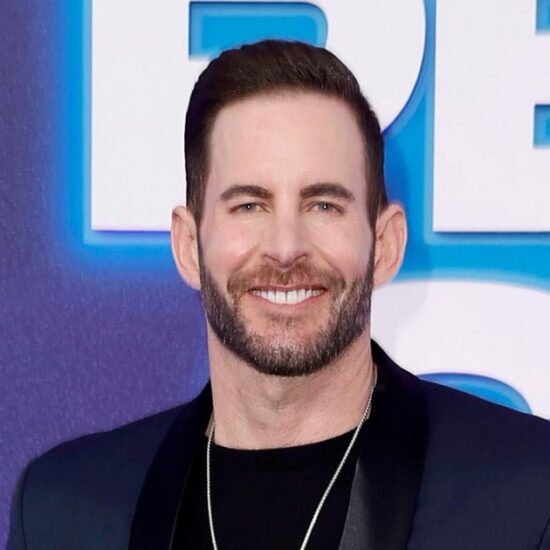
BY KRISTAL SOTOMAYOR AND EDDIE HUSTLEBY
For the past two years, the IDA Documentary Awards Competition has been headed by Awards Competition Manager Kristal Sotomayor and Awards Competition Coordinator Eddie Hustleby. Together, they have relied on their unique identities and vantage points within the documentary industry to establish the most diverse slate of submissions and jury committees of any IDA Documentary Awards on record. Both share their personal perspectives on the influences and passions that drive their work.
A documentary awards “competition” is quite separate from the commonplace definition of the word. A “competition” implies teams, adversaries and strategy. In our competition, no players can see their opponents, no teams know their relative advantage or disadvantage and no film sees their ranking until the competition is long concluded. The real rivalry in our competition is between favors and fairness, corruption and integrity. It’s an ethical arena rather than a physical one. As we detail below, our main strategies in this ethical competition have been diversification, collaborative learning and accountable structures. With these tools, we believe we have implemented a more fair and representative model of how to run an awards competition. It is this model we wish to document and uphold.
It’s impossible for our team to leave our identities and upbringing at home in our work on the IDA Documentary Awards Competition. Our personal life experiences inform the goals and decisions we’ve made as a program—above all, regarding our diversification efforts.
Kristal Sotomayor cites their upbringing as a child of Peruvian immigrants in the US as the main catalyst for entering the documentary field. Sotomayor’s personal films have captured this first-generation experience and covered pressing issues affecting immigrant communities. It was this work that led Sotomayor to a career in community-centered field-building within the arts and nonprofit sectors. Prior to working at IDA, they were the Programming Director for the Philadelphia Latino Film Festival and the Communications and Outreach Coordinator at Scribe Video Center. Sotomayor’s past professional experience fostered connections within Latin America and the Caribbean, which they were able to bring to the submission and judging process of IDA’s Awards Competition.
Global connections have fostered more diverse submissions and allowed our judging process to be less US-centric. However, a significant capacity-building and workflow-revision process needed to be imagined in order to effectively manage people (and films) across such diverse circumstances. As a fourth-generation Californian with a mixed-race identity, Eddie Hustleby understands the frustration inherent in the “single-select” mode of racial identification. Hustleby built new systems of outreach, tracking and analysis to diversify the competition and uphold fairness in review of submissions. Hustleby’s family experience also undergirds his dedication to robust demographic understanding and representation. This year, submitters and jurors had more options than ever before to accurately represent their nuanced identity, and the Awards team has built semi-automated systems to represent the fruits of our outreach efforts in real time. Hustleby’s work to improve the process for obtaining demographics has allowed us to more accurately track our success and plan for future improvements.
This year, the IDA Documentary Awards received 806 total submissions in all categories. Of all the submissions, 319 (39.6%) were internationally produced or co-produced projects. In total, 86 countries were represented. Our committees of chairs and jurors spanned 52 countries, which allowed a truly diverse group of projects to rise to the top of our nominations. All of these successes are due to our dedication to ensuring international and diverse representation.
This past year we participated in a “collaborative learning” effort with partner organizations in our global field. These sessions included one-on-one conversations to hear constructive feedback, share ideas, and discuss pressing issues in our industry. Through our collaborative learning efforts, we spoke with other awards shows, international filmmaking organizations, filmmakers, jurors and distributors.
Through our conversations with other awards shows in the field, we were able to discuss growing concerns with privacy and protections of screeners, systems for managing submissions, and equitable jury processes. From those conversations, we were able to implement infrastructure within the awards that allowed for more seamless and secure access to private screeners. We were also able to build out an Airtable base that allowed us to more easily track submissions, waiver requests, and the progress of films through the jury process.
The most important step in ensuring that the competition is run “internationally” was to redefine the rules around the creation of committees. This year, we required that all jury committees be 50% non-US-based. Our jurors often serve as ambassadors to the IDA Documentary Awards not only in selecting the nominees and winners but also in making recommendations for potential submissions. It was crucial, for us, that the juries making key decisions were representative of the diversity we strive to obtain in submissions. The shortlists and nominees were selected by independent committees of 310 documentary makers, curators, critics, and industry experts from 52 countries, of which 164 (52.9%) of jurors were not US-based. In addition, 192 (61.9%) of the committee members identified as women and/or nonbinary, 220 (71%) as BIPOC, 51 (16.5%) as LGBTQ+ and 13 (4.2%) as disabled.
However, no one juror decides the fate of any project. Each project was painstakingly reviewed by at least three different individuals, including pre-screeners, before a verdict was reached. Each juror and chair also got a robust new “Competition Workflow” that outlined all of the expectations, timelines, and tutorials needed to assess submissions. New ethical guidelines with resource links were created to facilitate conversations and deliberations that kept in mind important discussions in the field including conflict of interest, questions of authorship, representation, diversity, duty of care to participants, informed consent, and more.
We also overhauled the existing feature documentary jury process to ensure that more international perspectives were included in the selection of the shortlist and nominees. In the past, the feature documentary juries selected the shortlist and a nominating committee, composed of majority IDA Board Members, decided upon the nominees. The nominating committee would also decide on the nominees and winner of the Best Director category. This process did not allow for transparency in decision-making and did not align with our ethical considerations to exclude IDA staff and Board Members from making Awards decisions. From this year onwards, the feature documentary chairs and jurors will review all of the submissions and make the shortlist, nominee, and Best Director decisions. This allows for greater review of projects from beginning, middle and end by a group of over 70 jurors from around the world, with the aim to build out a more ethical, considerate, and diverse group of shortlisted and nominated projects. We have found that this process has allowed for more in-depth conversations and deliberations than ever before.
We are proud to be one of the first Awards competitions to require closed captions and subtitles for all submissions. With over 800 submissions this year, the Awards team manually reviewed each submission to ensure that closed captions and subtitles were provided. This was particularly important given our diverse set of jurors. Closed captions are necessary not only for viewers that have hearing issues but also for viewers that use English as a second language. With closed captions, we ensured that our diverse and international juries were able to properly assess the submissions.
Through conversations with filmmakers, jurors and organizations, we also established the new TV Feature Documentary or Mini-Series category. Submissions in this category may be a feature documentary or mini-series that was produced with the intent to broadcast or stream on a distributor/platform and was not intended to be released in theaters. This category is distinct from our Multi-Part Documentary category, which represents a series with four or more episodes of over 30 minutes in length. The need for this category has arisen from the evolution of the documentary form on broadcast and streaming platforms, and as such, this category has attracted among the largest number of submissions.
One of our top priorities this year was to diversify the pool of submissions. It would have been impossible to achieve the most international submissions of any IDA Documentary Awards Competition without the knowledge, advice and recommendations of over 25 international organizations, including Docubox, Catalan Films, Colectiva Cineastas Hondureñas, Generation Africa, and Sudan Film Factory, to name a few. These organizations encouraged filmmakers in their networks to submit their projects and we provided waivers based on financial need to those who could not afford the price of submission. Overall, 200+ financial need waivers were provided, creating opportunities for filmmakers from underrepresented parts of the globe. Through our robust outreach efforts, we were able to remove financial barriers for filmmakers from regions that have been underrepresented at the Awards.
Outreach to audio documentaries and podcasts were also part of our top priorities this year. We have formed collaborations with AIR, a global community of independent audio producers, who helped us navigate the audio field. We also launched a collaboration with The Podcasting, Seriously Awards Fund. The Fund supports independent BIPOC, Queer and Trans audio professionals in submitting their work to media/journalism awards. The Fund accepts reimbursement applications on a rolling basis year-round and is committed to supporting 200+ independent producer award submissions each year. These key connections have helped us obtain more audio documentary submissions this year than last year.
The structure and workflow of IDA’s Awards Competition has never been static. Each year we adapt to better respond to the pressing concerns of the documentary community. We do not think of this competition in terms of winners and losers, but rather as an opportunity to highlight a multitude of films, especially independent work from creatives outside of the US. It is for this reason that we continue to push for more categories of submission, more diversity in juror pools and more comprehensive study of collected demographics. We state these goals publicly to hold ourselves accountable and encourage others in the awards space to do the same. So long as these priorities stay at the forefront of our mission, our Awards Competition will keep soaring higher towards the ultimate goal of removing all barriers to participation and truly representing the best documentary projects each year from around the world.
Kristal Sotomayor is a bilingual Latinx freelance journalist, documentary filmmaker, and festival programmer based in Philadelphia. They serve as the IDA’s Awards Competition Manager, Editor-In-Chief of the cinéSPEAK Journal, and as a Programmer for True/False Film Festival and SFFILM.
Eddie Hustleby is an artist programs coordinator and filmmaker who has worked in the Awards Competition Department at the International Documentary Association for the past three competition cycles. In 2023, he will begin his role as the Competition & Community Programs Manager at Third Coast International Audio Festival.













